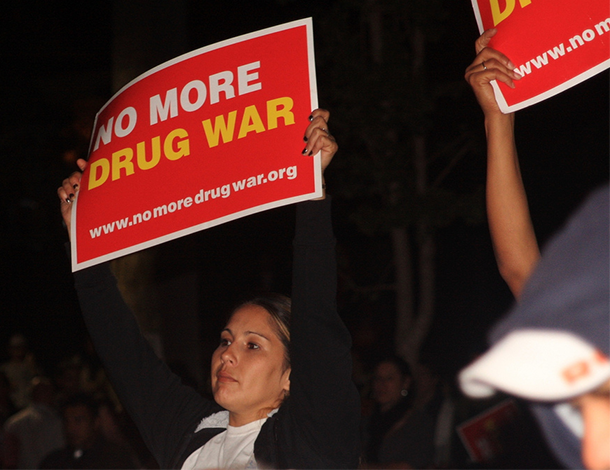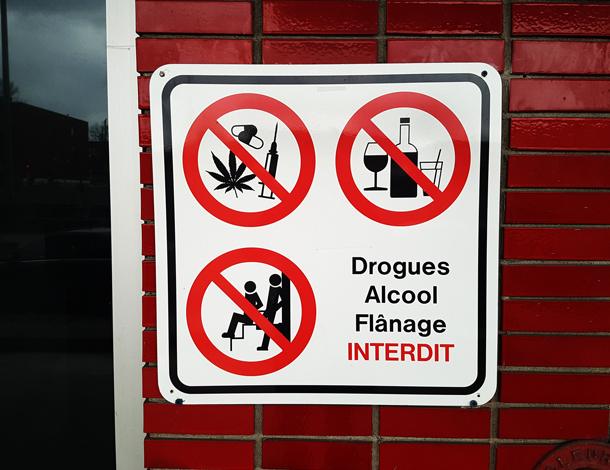Like feminism, harm reduction is a philosophy that encourages us to do away with the false distinction between ‘good’ and ‘bad’ women.
People who use drugs face widespread stigma and criminalisation.
This is well-known. But drug policy discussions often centre on men. The experiences of women, trans and gender non-conforming people who use drugs are ignored and silenced – though they face particular challenges accessing care and the gendered stigma of being perceived as unfit parents and ‘fallen’ women.

In May, I participated in a meeting that AWID (Association for Women’s Rights in Development) co-organised in Berlin with feminists and women who use drugs from across eastern Europe and Central Asia. We carried very different experiences and backgrounds, but had a common purpose: to learn from one another and connect the dots between drug policy and feminism in the region.
Women shared their experiences with using drugs including shaming and violence from doctors, sexual violence, criminalisation and stigma within their communities. We looked at how feminism could help push for responses centred on their unique experiences. Three days and many conversations later, I was convinced that drug policy was a feminist issue.
Feminism calls on us to see the specific experiences of all women, including women who use drugs. Women face particular challenges because of the oppressive structures within which we live. For women who use drugs, their identities as women and people who use drugs are intertwined.
It would be “impossible to separate what is more important for me – accepting myself as a person, who enjoys psychoactive substances, or as a woman, whose transformation is scary for other people, and a joyous process for me,” said one of the participants at the Berlin meeting.
She challenged us to understand that, used safely, drugs can contribute positively to people’s lives.
Harm reduction, rather than repression and punishment, is one response that allows us to put feminist values into practice. It destigmatises drug use while curbing harmful impacts. It’s a philosophy that embraces a whole range of practices, including needle exchanges to reduce disease transmission and providing safe environments to use drugs and avoid violence or other stresses.
Like feminism, harm reduction encourages us to do away with the false distinction between ‘good’ and ‘bad’ women: those that deserve support and those that don’t. It rejects solutions that see people as disposable and exploitable, and helps us understand how prison-based responses do not work.
These responses don’t end drug use, but they do penalise those most marginalised in society and make them more vulnerable. They disproportionately impact black and brown, indigenous people, trans people, sex workers, poor communities and other historically oppressed groups already at higher risk of violence and criminalisation.

The narco industry, complicit in extreme levels of violence against women, must be challenged too. But militarised responses like the US-led so-called “War on Drugs” put those already experiencing oppression because of their gender, immigration status, class, race and other factors, in the crosshairs of even more violence. Feminist responses must recognise this.
Women who use drugs are also at higher risk of domestic and sexual violence, but they face more barriers in accessing support. They may face humiliation and discrimination in accessing healthcare, including during pregnancy and childbirth. Too often they're not treated as individuals with autonomy and dignity.
They may be excluded from domestic violence shelters, or risk losing their children if they seek help. Feminists created these shelters to support all women facing violence. But many cannot respond to the specific needs of women who use drugs. When women cannot access support in shelters, they may stay in violent and abusive situations.
We can and must do better.
Alexandra* is one of the women I met in Berlin. She's used drugs including heroin and cannabis, on and off, for most of her adult life. It's an important part of her identity, she said, allowing her to “live in harmony” with herself. But, she can’t share this with relatives or friends, because of how they may react.
“Some people treat you with pity, and the majority with contempt and disgust. Sometimes you think that the best option is to die from an overdose,” Alexandra said, describing pervasive shaming and judgement that is the natural result of drug policy that stigmatises and punishes people who use drugs.
In the Central Asia country where Alexandra lives, women detained for drug possession face an impossible choice: bribing someone (if they have access to funds), providing sexual ‘favours’ to police officers, or prison.
In most countries in the region, and beyond, responses are similar: people who use drugs face violence, punishment and harsh prison sentences or even death. This only perpetuates cycles of inequality and violence.
Alexandra is a loving parent and hard-working community member who fears the repercussions on her children if the authorities discover her use of drugs.
As feminists, we must listen to women who use drugs and stand for solutions such as harm reduction that challenge systems of oppression.
* Name changed to protect privacy.
Fenya Fischler is Co-Creating Feminist Realities Coordinator. She is currently based in London where she is also involved in feminist and anti-militarist organising and migrant solidarity.
